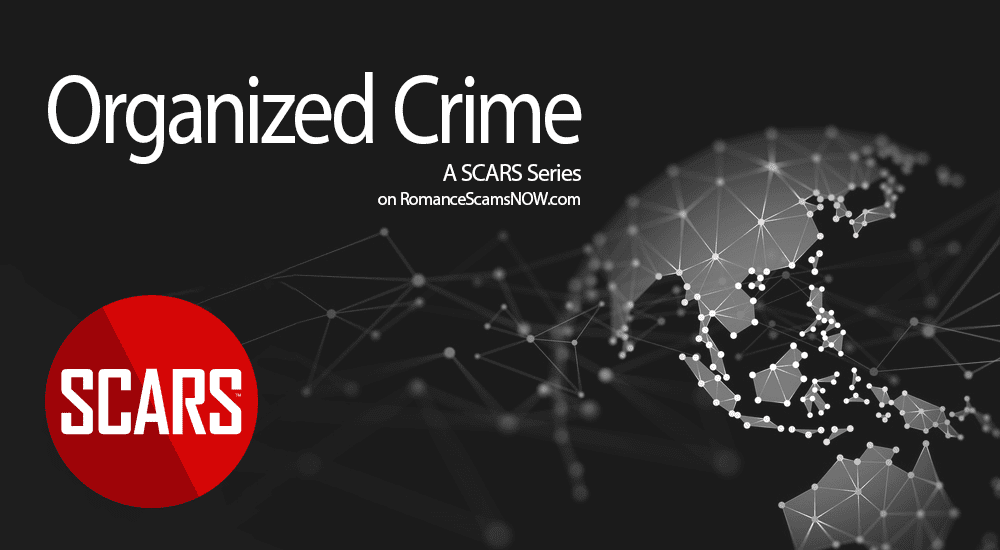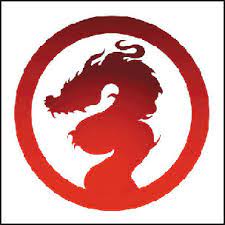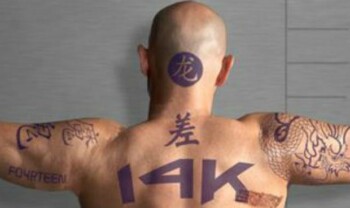
SCARS Institute’s Encyclopedia of Scams™ Published Continuously for 25 Years

The Hong Kong 14K Triad Cybercrime Gang – A Criminal Organization & Cybercriminal Group
The 14K triad is a transnational organized crime syndicate that originated in Hong Kong in the 1940s. It is one of the largest and most powerful triads in the world, with an estimated membership of over 20,000 members. The 14K is involved in a wide range of criminal activities, including drug trafficking, gambling, extortion, and prostitution.
What is the 14K Triad Cybercrime Organization
The 14K triad is known for its strict hierarchy and its use of violence. The triad is divided into different sub-groups, each of which is led by a “dragon head.” The dragon heads are responsible for overseeing the criminal activities of their sub-groups and for maintaining discipline.
The 14K triad has a significant presence in Hong Kong, Macau, and mainland China. However, the triad also has a presence in other countries, including the United States, Canada, and Australia.
14K Triad Leadership
Wan Kuok-koi (尹國駒), popularly known as Broken Tooth Koi (崩牙駒), is a former leader of the Macau branch of the 14K triad. He was born in Hong Kong in 1955 and moved to Macau in the 1970s. He quickly rose through the ranks of the 14K triad and became one of the most powerful criminal figures in Macau.
Broken Tooth Koi was known for his ruthlessness and his lavish lifestyle. He was involved in a wide range of criminal activities, including drug trafficking, gambling, extortion, and prostitution. He was also known for his close ties to the Macau government.
In 1998, Broken Tooth Koi was arrested and charged with a number of crimes, including murder, car-bombing, and criminal association. He was sentenced to 15 years in prison, but he was released in 2012.
Since his release from prison, Broken Tooth Koi has maintained a low profile. However, he is still believed to be involved in organized crime. He is also a popular figure in Macau, and he is often seen as a symbol of the city’s criminal underworld.
Broken Tooth Koi is a controversial figure. Some people see him as a criminal who should be behind bars. Others see him as a successful businessman who has overcome adversity. Regardless of one’s opinion of him, there is no doubt that Broken Tooth Koi is one of the most fascinating and notorious figures in Macau’s history.
14K Triad Engaged in Cybercrimes
The 14K triad of Hong Kong is heavily involved in cybercrimes. The triad has been known to use a variety of cybercrime methods, including:
- Phishing: The triad sends phishing emails to individuals and businesses in order to trick them into revealing their personal information or financial data.
- Malware: The triad infects the computer systems of individuals and businesses with malware in order to steal data or gain access to internal networks.
- Ransomware: The triad attacks businesses and individuals with ransomware, encrypting their data and demanding a ransom payment in exchange for the decryption key.
- Cryptocurrency theft: The triad steals cryptocurrency from exchanges and wallets.
- Identity theft: The triad steals personal information from individuals and uses it to commit other crimes, such as fraud and identity theft.
The 14K triad is also known to be involved in the development and sale of cybercrime tools and services. The triad has a network of skilled hackers who are able to create and exploit vulnerabilities in computer systems and software.
The 14K triad is a serious threat to businesses and individuals around the world. The triad is well-organized and has access to sophisticated technology. It is important to be aware of the triad’s cybercrime activities and to take steps to protect yourself from cybercrime.
Human Trafficking
the 14K triad of Hong Kong is involved in human trafficking to scam call centers where victims are forced to engage in phone and online scams. This has been documented in several reports by the United Nations and other organizations.
The 14K triad is known to operate scam call centers in Cambodia, Laos, Myanmar, and the Philippines. These call centers often target people in the United States, Canada, Australia, and other developed countries.
The victims of human trafficking are often forced to work long hours in poor conditions. They are often beaten or threatened if they do not meet their quotas. The victims are also often denied food and water, and they are not allowed to leave the call centers.
The 14K triad is a serious threat to public safety and security. The triad is responsible for a significant amount of crime and violence in the countries where it operates. The triad is also a major source of corruption and economic instability.
14K Triad History
The 14K triad was formed in Guandong, China (PRC) in 1945 as an anti-Communist action group by Kuomintang Lieutenant-General Kot Siu-wong. Following the Chinese Communist Revolution in 1949, the 14K relocated to Hong Kong.
The 14K quickly became one of the most powerful and influential triads in Hong Kong. The triad is involved in a wide range of criminal activities, including drug trafficking, gambling, extortion, prostitution, and cybercrime.
Here are some of the major crimes that the 14K triad has been involved in:
- In 1974, the 14K triad was involved in the kidnapping and murder of Wong Siu-yee, a wealthy Hong Kong businessman.
- In 1982, the 14K triad was involved in the bombing of the Macau Maritime Ferry Terminal, which killed 33 people and injured over 100 others.
- In 1995, the 14K triad was involved in the murder of Hong Kong businessman Lam Kwong-kuen, who was known as the “King of Gambling.”
- In 2012, the 14K triad was involved in a $100 million cybercrime scheme that targeted businesses in the United States and other countries.
Law enforcement agencies around the world are working to combat the 14K triad. However, the triad is a powerful and resourceful organization, and it remains a major challenge for law enforcement.
Here are some of the law enforcement actions that have been taken against the 14K triad:
- In 1998, Wan Kuok-koi, the former leader of the Macau branch of the 14K triad, was arrested and sentenced to 15 years in prison for murder, car-bombing, and criminal association.
- In 2014, the United States Treasury Department designated the 14K triad as a transnational criminal organization.
- In 2019, the Australian government froze the assets of several 14K triad members.
The 14K triad is a serious threat to public safety and security. The triad is responsible for a significant amount of crime and violence in the communities where it operates. The triad is also a major source of corruption and economic instability.
14K Triad Cybercrime Gang Locations
The 14K triad is a transnational organized crime syndicate that originated in Hong Kong in the 1940s. It has a significant presence in Hong Kong, Macau, and mainland China. However, the triad also has a presence in other countries and locations, including:
- Argentina
- Australia
- Belgium
- Brazil
- Cambodia
- Canada
- Chile
- Colombia
- France
- Germany
- Indonesia
- Italy
- Japan
- Laos
- Malaysia
- Mexico
- Myanmar
- Netherlands
- New Zealand
- Peru
- Philippines
- Portugal
- Russia
- Singapore
- South Africa
- South Korea
- Spain
- Taiwan
- Thailand
- United Kingdom
- United States
- Vietnam
The 14K triad is involved in a wide range of criminal activities, including drug trafficking, gambling, extortion, prostitution, and cybercrime. The triad is a serious threat to public safety and security in the countries and locations where it operates.
How 14K Triad Cybercrime Gang Organized
The 14K Triad is a highly decentralized organization, with no single leader or governing body. Instead, it is composed of a number of autonomous sub-groups, each of which is led by a “dragon head.” The dragon heads are responsible for overseeing the criminal activities of their sub-groups and for maintaining discipline.
The 14K Triad also has a number of other high-ranking positions, including:
- Deputy dragon head: The deputy dragon head is the second-in-command of a sub-group.
- Vanguard: The vanguard is responsible for recruiting new members and for protecting the dragon head and other high-ranking members of the triad.
- Incense master: The incense master is responsible for religious ceremonies and rituals.
- Soldier: Soldiers are the lowest-ranking members of the triad. They are responsible for carrying out the orders of the dragon head and other high-ranking members.
The 14K Triad is known for its strict hierarchy and its use of violence. The triad has a number of rules and regulations that members must adhere to. For example, members are required to be loyal to the triad and to obey the orders of their superiors. Members who violate the triad’s rules and regulations can be punished severely, including through violence or expulsion from the triad.
The 14K Triad’s decentralized organizational structure makes it difficult for law enforcement to combat. However, law enforcement agencies around the world are working together to share intelligence and to develop strategies to disrupt the triad’s criminal activities.
The 14K Triad Cybercrime Gang is a Threat to Public Safety Worldwide
The 14K triad is a serious threat to public safety and security. The triad is responsible for a significant amount of crime and violence in the communities where it operates. The triad is also a major source of corruption and economic instability.
The 14K Triad Cybercrime Gang is a highly organized and sophisticated criminal group that is involved in a wide range of crimes, including:
- Cybercrime: The 14K Triad Cybercrime Gang is best known for its sophisticated and targeted cyberattacks against financial institutions, primarily banks. The group typically uses a combination of phishing and malware to gain access to bank systems. Once the group has access to a bank’s system, they will then steal money by transferring it to their own accounts or by using fraudulent ATM withdrawals.
- Phishing Attacks: The gang has perfected the art of crafting convincing phishing emails and websites to trick individuals and organizations into revealing sensitive information such as login credentials and credit card details.
- Ransomware: They have developed and deployed their ransomware strains, holding victims’ data hostage until a ransom is paid.
- Cryptocurrency Exploitation: The gang takes advantage of cryptocurrency’s supposed anonymity to facilitate their operations, including ransom payments.
- Bank fraud: The 14K Triad Cybercrime Gang has been responsible for stealing millions of dollars from banks around the world. In 2017, the group was responsible for a series of attacks against banks in Russia and Europe that resulted in the theft of over $100 million. In 2018, the group was responsible for an attack against a bank in the United States that resulted in the theft of over $20 million.
- Wire fraud: The 14K Triad Cybercrime Gang is also involved in wire fraud scams. In these scams, the group will trick people into sending them money by wire transfer. The group often uses phishing emails to target their victims.
- Identity theft: The 14K Triad Cybercrime Gang is also involved in identity theft scams. In these scams, the group will steal people’s personal information, such as their Social Security numbers and bank account numbers. The group may then use this information to commit fraud or to sell it to other criminals.
- Money laundering: The 14K Triad Cybercrime Gang is also involved in money laundering. Money laundering is the process of making illegally gained proceeds (i.e. “dirty money”) appear legal (i.e. “clean”). The group often uses money laundering schemes to conceal the proceeds of their crimes.
Challenges and Law Enforcement Response
Here are some of the major police actions or operations against the 14K Triad:
- In 1998, Wan Kuok-koi, the former leader of the Macau branch of the 14K Triad, was arrested and sentenced to 15 years in prison for murder, car-bombing, and criminal association.
- In 2005, Hong Kong police arrested over 100 members of the 14K Triad in a series of raids targeting the triad’s drug trafficking and gambling operations.
- In 2012, the United States Treasury Department designated the 14K Triad as a transnational criminal organization. This designation freezes the assets of the triad and its members in the United States and prohibits US citizens from doing business with them.
- In 2013, Australian police arrested over 20 members of the 14K Triad in a series of raids targeting the triad’s money laundering operations.
- In 2019, Hong Kong police arrested over 100 members of the 14K Triad in a series of raids targeting the triad’s extortion and racketeering operations.
These are just a few examples of the many police actions and operations that have been taken against the 14K Triad over the years. Law enforcement agencies around the world are working together to combat the triad and to disrupt its criminal activities.
However, the 14K Triad is a powerful and resourceful organization, and it remains a major challenge for law enforcement. The triad is constantly adapting its methods and operations in order to evade detection.
Summary
It is important to note that the 14K Triad is not a monolithic organization. It is composed of a number of autonomous sub-groups, each of which has its own strengths and weaknesses. This makes it difficult for law enforcement to develop a single strategy to combat the triad.
Despite the challenges, law enforcement agencies around the world are committed to combating the 14K Triad. The triad is a serious threat to public safety and security, and law enforcement agencies are determined to bring the triad and its members to justice.
However, the triad is a powerful and resourceful organization, and it remains a major challenge for law enforcement.
More:
- 14K triad – Asia Times
- 14K (triad) – Wikipedia
- Transnational Organized Crime (cognella.com)
- Global Cybercrime is Costing Every Person on this Planet $750 per Year! (romancescamsnow.com)
- Fraud’s Dark Matter: The Universe of Scams Most of Us Never Know About (romancescamsnow.com)
- Increasing collaboration among cybercrime gangs (barracuda.com) 2023
- Who are the ransomware gangs wreaking havoc on the world’s biggest companies? | Renee Dudley | The Guardian
- A Beginner’s Guide to the Dark Web for Investigators (scamsnow.com)
- EUROPOL Report: Money-Laundering Criminals Are Adapting To New Technology Faster Than Authorities Can Keep Up (scamsnow.com)
- Criminal Cryptocurrency Boss Jailed For 11,196 Years In Turkey For Fraud (scamsnow.com)
- Qakbot Botnet Infrastructure Shattered After An International Operation Led By FBI/Europol Takes It Down (scamsnow.com)
- 16shop Phishing-As-A-Service Platform Taken Down (scamsnow.com)
- Cybercriminals Operating Major Ransomware Hosting Service Arrested In Poland (scamsnow.com)
- Major Ivory Coast Scammer Kingpin of OPERA1er Group Arrested (scamsnow.com)
- Red Dragon – Organized Criminal Enterprise Profile (romancescamsnow.com)
- Black Axe – Organized Criminal Enterprise Profile (romancescamsnow.com)
-/ 30 /-
What do you think about this?
Please share your thoughts in a comment below!
Table of Contents
- Transnational Organized Criminal Enterprise from Hong Kong Profile
- The Hong Kong 14K Triad Cybercrime Gang – A Criminal Organization & Cybercriminal Group
- What is the 14K Triad Cybercrime Organization
- 14K Triad Leadership
- 14K Triad Engaged in Cybercrimes
- Human Trafficking
- 14K Triad History
- 14K Triad Cybercrime Gang Locations
- How 14K Triad Cybercrime Gang Organized
- The 14K Triad Cybercrime Gang is a Threat to Public Safety Worldwide
- Challenges and Law Enforcement Response
- Summary
- More:
LEAVE A COMMENT?
Recent Comments
On Other Articles
- Arwyn Lautenschlager on Love Bombing And How Romance Scam Victims Are Forced To Feel: “I was love bombed to the point that I would do just about anything for the scammer(s). I was told…” Feb 11, 14:24
- on Dani Daniels (Kira Lee Orsag): Another Scammer’s Favorite: “You provide a valuable service! I wish more people knew about it!” Feb 10, 15:05
- on Danielle Delaunay/Danielle Genevieve – Stolen Identity/Stolen Photos – Impersonation Victim UPDATED 2024: “We highly recommend that you simply turn away form the scam and scammers, and focus on the development of a…” Feb 4, 19:47
- on The Art Of Deception: The Fundamental Principals Of Successful Deceptions – 2024: “I experienced many of the deceptive tactics that romance scammers use. I was told various stories of hardship and why…” Feb 4, 15:27
- on Danielle Delaunay/Danielle Genevieve – Stolen Identity/Stolen Photos – Impersonation Victim UPDATED 2024: “Yes, I’m in that exact situation also. “Danielle” has seriously scammed me for 3 years now. “She” (he) doesn’t know…” Feb 4, 14:58
- on An Essay on Justice and Money Recovery – 2026: “you are so right I accidentally clicked on online justice I signed an agreement for 12k upfront but cd only…” Feb 3, 08:16
- on The SCARS Institute Top 50 Celebrity Impersonation Scams – 2025: “Quora has had visits from scammers pretending to be Keanu Reeves and Paul McCartney in 2025 and 2026.” Jan 27, 17:45
- on Scam Victims Should Limit Their Exposure To Scam News & Scammer Photos: “I used to look at scammers photos all the time; however, I don’t feel the need to do it anymore.…” Jan 26, 23:19
- on After A Scam, No One Can Tell You How You Will React: “This article was very informative, my scams happened 5 years ago; however, l do remember several of those emotions and/or…” Jan 23, 17:17
- on Situational Awareness and How Trauma Makes Scam Victims Less Safe – 2024: “I need to be more observant and I am practicing situational awareness. I’m saving this article to remind me of…” Jan 21, 22:55
ARTICLE META
Important Information for New Scam Victims
- Please visit www.ScamVictimsSupport.org – a SCARS Website for New Scam Victims & Sextortion Victims
- Enroll in FREE SCARS Scam Survivor’s School now at www.SCARSeducation.org
- Please visit www.ScamPsychology.org – to more fully understand the psychological concepts involved in scams and scam victim recovery
If you are looking for local trauma counselors please visit counseling.AgainstScams.org or join SCARS for our counseling/therapy benefit: membership.AgainstScams.org
If you need to speak with someone now, you can dial 988 or find phone numbers for crisis hotlines all around the world here: www.opencounseling.com/suicide-hotlines
A Note About Labeling!
We often use the term ‘scam victim’ in our articles, but this is a convenience to help those searching for information in search engines like Google. It is just a convenience and has no deeper meaning. If you have come through such an experience, YOU are a Survivor! It was not your fault. You are not alone! Axios!
A Question of Trust
At the SCARS Institute, we invite you to do your own research on the topics we speak about and publish, Our team investigates the subject being discussed, especially when it comes to understanding the scam victims-survivors experience. You can do Google searches but in many cases, you will have to wade through scientific papers and studies. However, remember that biases and perspectives matter and influence the outcome. Regardless, we encourage you to explore these topics as thoroughly as you can for your own awareness.
Statement About Victim Blaming
SCARS Institute articles examine different aspects of the scam victim experience, as well as those who may have been secondary victims. This work focuses on understanding victimization through the science of victimology, including common psychological and behavioral responses. The purpose is to help victims and survivors understand why these crimes occurred, reduce shame and self-blame, strengthen recovery programs and victim opportunities, and lower the risk of future victimization.
At times, these discussions may sound uncomfortable, overwhelming, or may be mistaken for blame. They are not. Scam victims are never blamed. Our goal is to explain the mechanisms of deception and the human responses that scammers exploit, and the processes that occur after the scam ends, so victims can better understand what happened to them and why it felt convincing at the time, and what the path looks like going forward.
Articles that address the psychology, neurology, physiology, and other characteristics of scams and the victim experience recognize that all people share cognitive and emotional traits that can be manipulated under the right conditions. These characteristics are not flaws. They are normal human functions that criminals deliberately exploit. Victims typically have little awareness of these mechanisms while a scam is unfolding and a very limited ability to control them. Awareness often comes only after the harm has occurred.
By explaining these processes, these articles help victims make sense of their experiences, understand common post-scam reactions, and identify ways to protect themselves moving forward. This knowledge supports recovery by replacing confusion and self-blame with clarity, context, and self-compassion.
Additional educational material on these topics is available at ScamPsychology.org – ScamsNOW.com and other SCARS Institute websites.
Psychology Disclaimer:
All articles about psychology and the human brain on this website are for information & education only
The information provided in this article is intended for educational and self-help purposes only and should not be construed as a substitute for professional therapy or counseling.
While any self-help techniques outlined herein may be beneficial for scam victims seeking to recover from their experience and move towards recovery, it is important to consult with a qualified mental health professional before initiating any course of action. Each individual’s experience and needs are unique, and what works for one person may not be suitable for another.
Additionally, any approach may not be appropriate for individuals with certain pre-existing mental health conditions or trauma histories. It is advisable to seek guidance from a licensed therapist or counselor who can provide personalized support, guidance, and treatment tailored to your specific needs.
If you are experiencing significant distress or emotional difficulties related to a scam or other traumatic event, please consult your doctor or mental health provider for appropriate care and support.
Also read our SCARS Institute Statement about Professional Care for Scam Victims – click here to go to our ScamsNOW.com website.

















Thank you for your comment. You may receive an email to follow up. We never share your data with marketers.